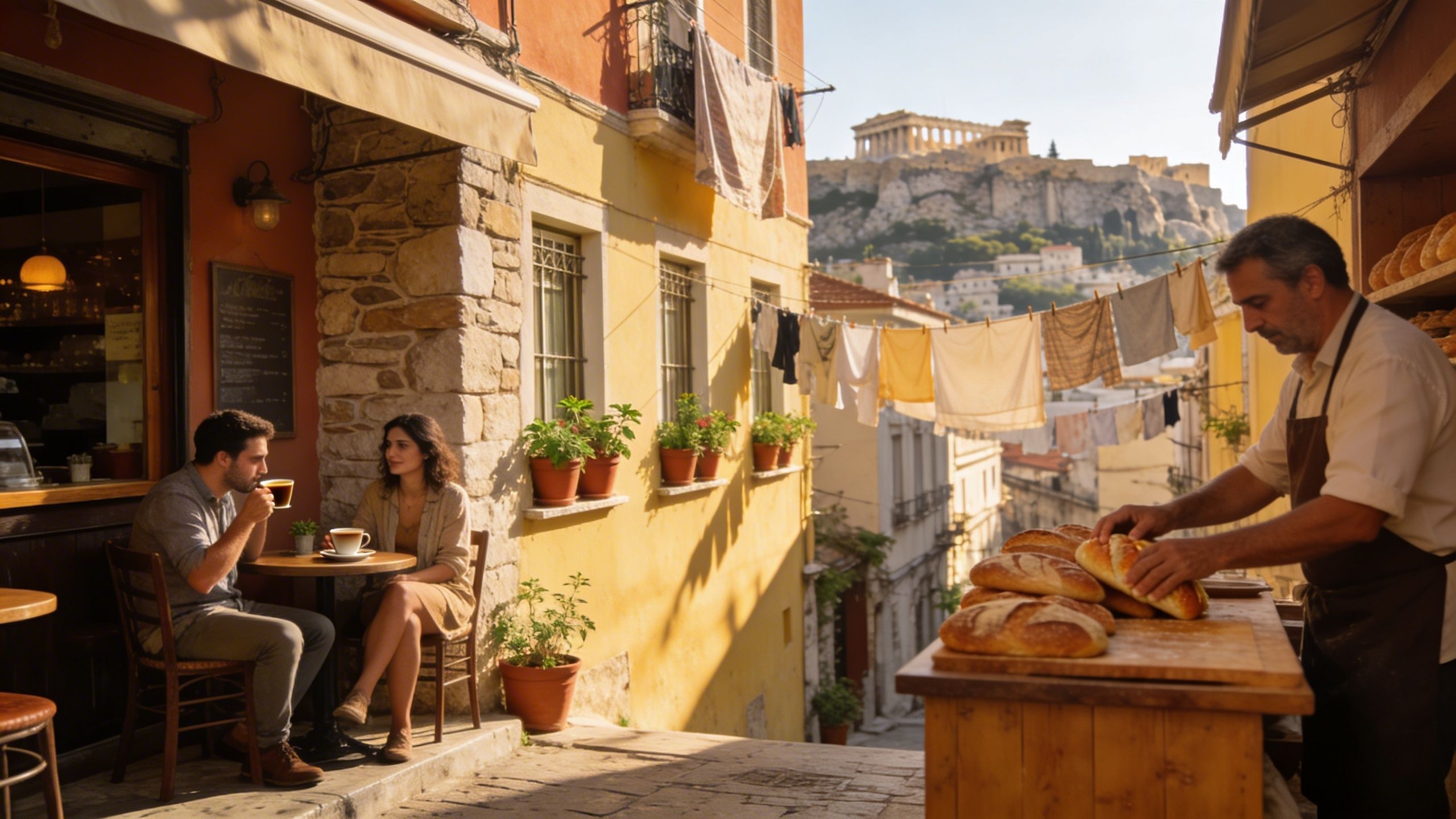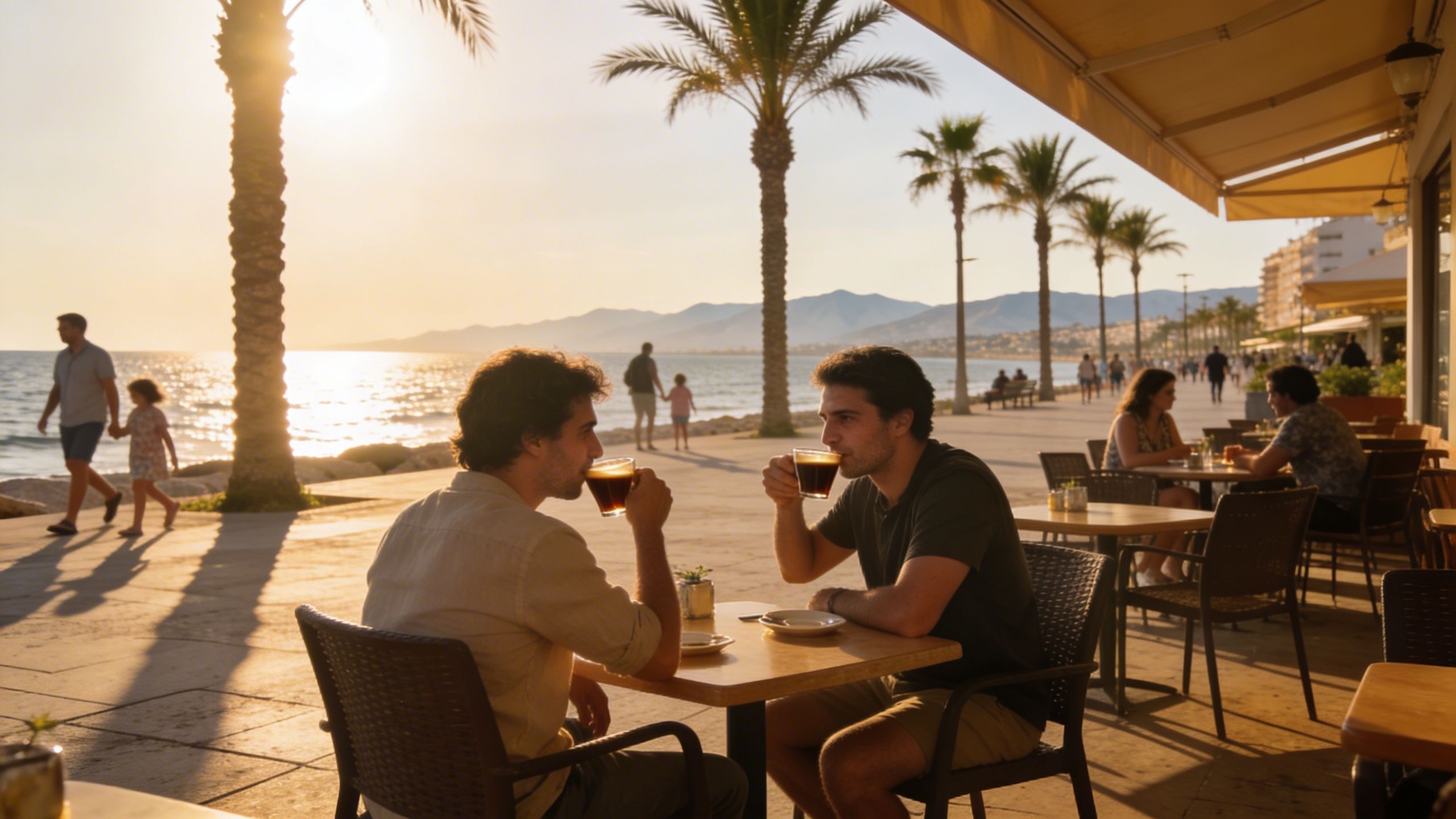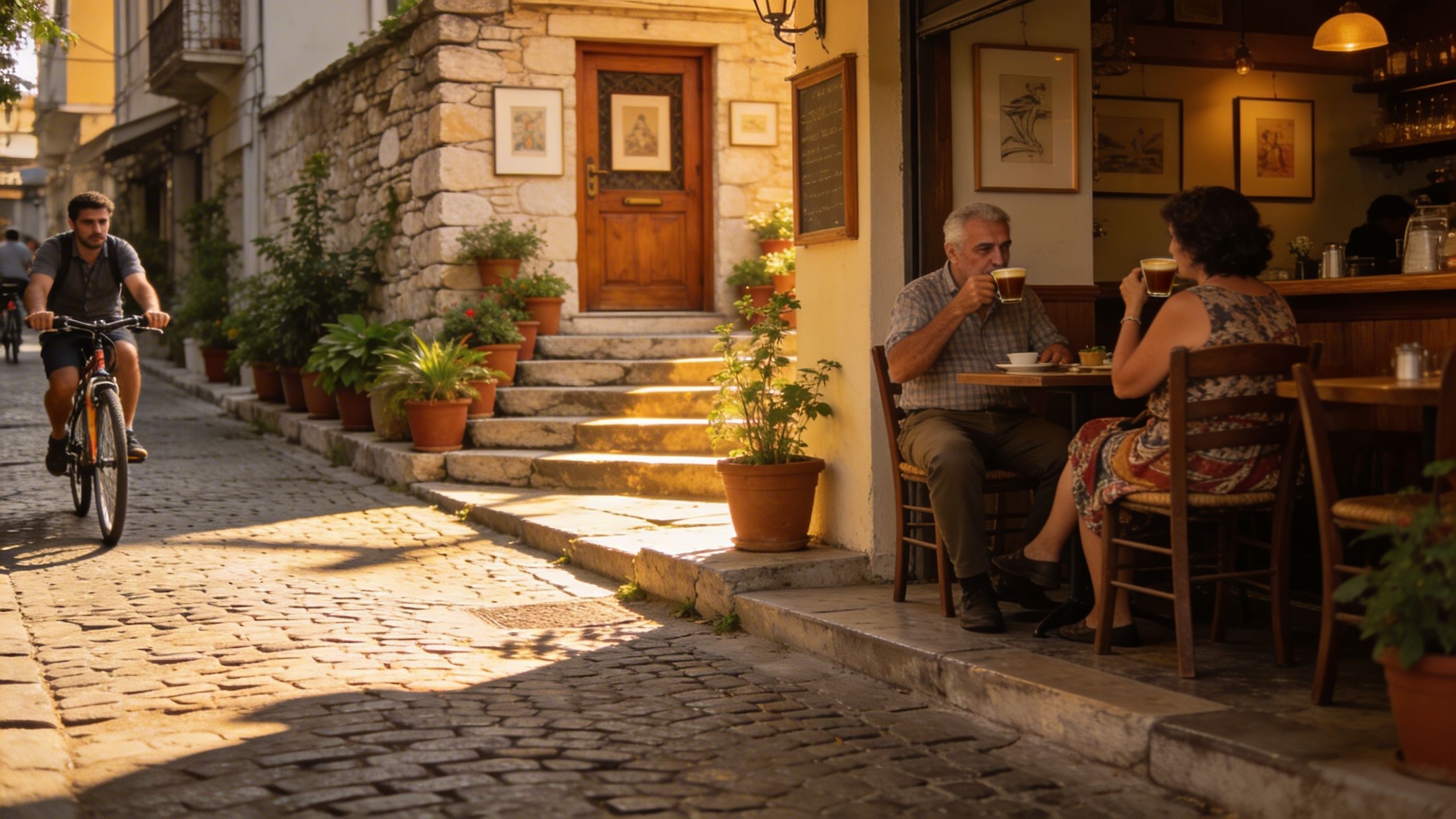Bid in Autumn: Greece’s Seasonal Edge for Closing
Why autumn (not summer) is often the smartest time to make offers in Greece—use seasonal calm to negotiate stewardship clauses, secure local craft, and close with long‑term care.
Imagine stepping from a cinnamon‑smelling bakery on a warm October morning in Koukaki, coffee in hand, as the city exhales after the tourist rush. The streets feel local again: kids cycling past, neighborhood tavernas wiping down tables, and agents bringing sellers serious about stewardship, not rent‑extracting short lets. That calm — the pause between high season and winter — is where smart offers close and thoughtful stewardship begins, especially in Greece's shifting 2024–25 market. Recent market analysis shows continued price growth alongside new residency rules; timing your closing around season, regulation and care matters more than you think.
Living the Greek life: why season shapes choice
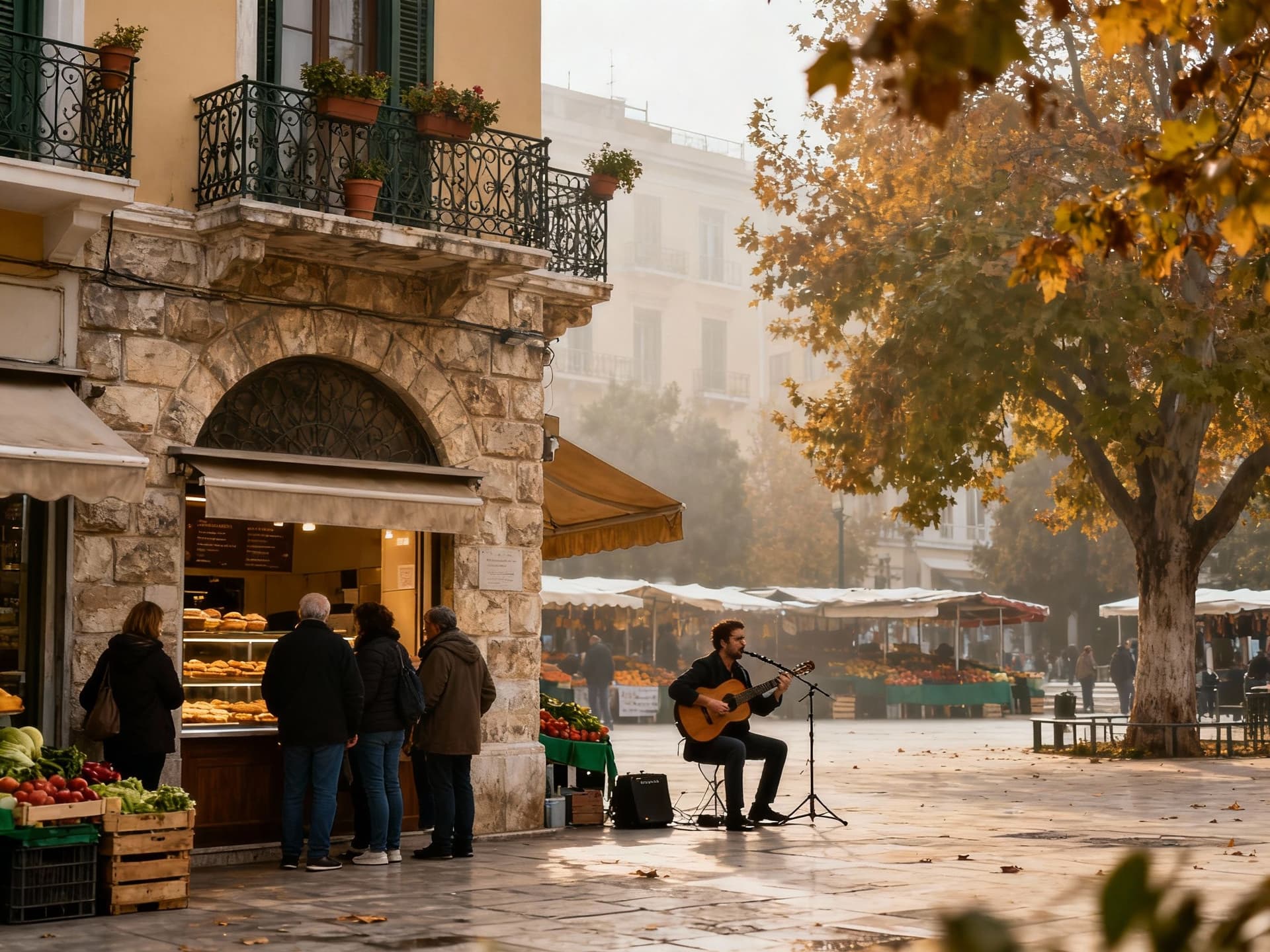
Greece is a slow‑changing mosaic: Athens neighborhoods pulse with espresso and evening promenades, island towns lean into sea and wind, and mountain villages keep ancient rhythms of market day and harvest. What you buy here is inseparable from how you’ll live — a rooftop in Plaka for museum nights, a stone house in Pelion for forested winters, or a sunlit veranda in Chania for year‑round outdoor meals. Season and community determine noise, services, and the very stewardship practices your new home will need.
Neighborhood spotlight: Athens — Koukaki, Plaka, and Pangrati
Koukaki mixes lived‑in corners with museums; Plaka offers the postcard narrow lanes under ancient stone; Pangrati hums with local cafés and small galleries. Walk down Veikou or Drakou and you’ll hear Greek seniors spin old jokes, students debate philosophy, and proprietors who’ve tended their shops for decades. For buyers, these pockets mean properties with authentic fabric — often older masonry that benefits from sensitive retrofits like breathable lime plasters and discreet solar on flat roofs.
Coast & islands: where summer charm hides long‑term realities
The islands glitter in July, but ask locals about October through March and you’ll hear another story: smaller crews for maintenance, fewer ferry connections, and a quieter market. National price trends show steady gains — urban and island markets rose through 2024–25 — which makes seasonally informed offers critical. Buying outside the tourist surge lets you inspect properties under their routine conditions and negotiate with owners who are thinking beyond high‑season bookings.
- Lifestyle highlights worth mapping before you buy
- Morning espresso at Little Kook in Psyrri or an early fish run at Athens’ Varvakios Market—see how daily life fits into your plan.
- Weekly island market in Naxos or Chania’s Agora — measure local food access and seasonal supply when imagining a garden or kitchen renovation.
- Sunset swims at Agios Nikolaos or Pelion coves — think maintenance cycles for pool and salt‑air corrosion when budgeting stewardship.
Making the move: closing with climate and community in mind
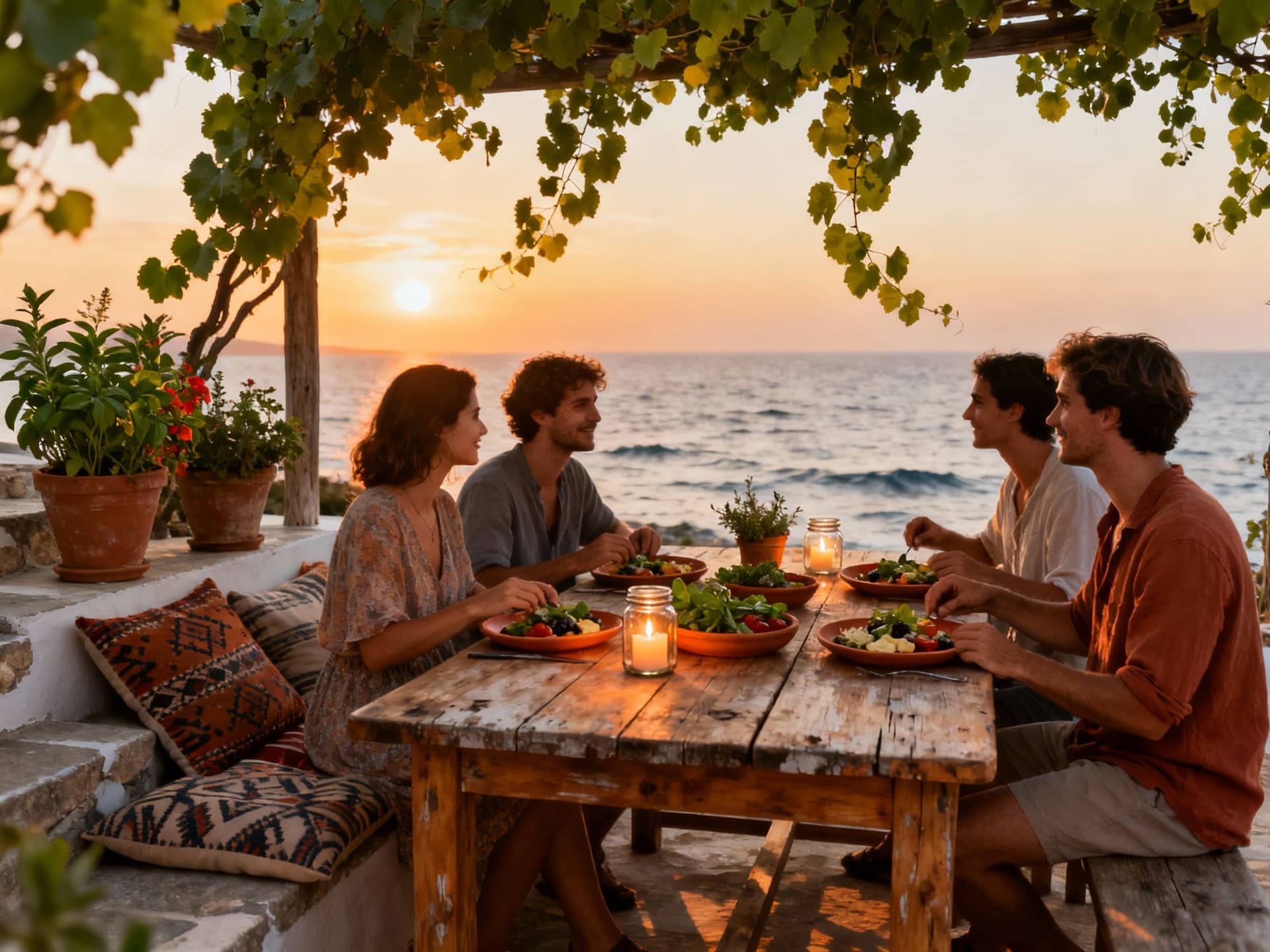
The practical side of closing in Greece has changed: transaction volumes rose in 2024 even as regulations around residency and short‑term rentals tightened. That mix means sellers in late season can be pragmatic, and buyers who time offers in autumn or spring often find sellers more realistic — and properties more accurately represented in daily use rather than staged for tourists. Use that seasonality to negotiate terms that include stewardship clauses: green retrofits, roof checks, and community‑friendly rental limits.
Property styles and sustainable tradeoffs
Stone cottages in the Peloponnese and neoclassical townhouses in central Athens both age gracefully, but their stewardship needs diverge. Stone needs breathable renders and passive rain management; old townhouses often require seismic reinforcements and upgraded insulation. New builds may offer solar and thermally efficient glazing, but lack the soul and thick walls that moderate summer heat. Match the property type to your stewardship appetite: do you want a restorative project that rebuilds local craft, or a low‑touch home that leans on modern eco‑systems?
Working with local experts who preserve place
Choose agencies and notaries who understand both legal shifts (like residency thresholds) and local stewardship. An agent who knows artisanal lime plasterers on Tinos or a structural engineer experienced with Athens’ neoclassical façades will save you time and money. And if your purchase intersects with residency programs, be aware that thresholds and use‑restrictions changed recently: procedural timing affects deposits, closing dates and what you can do with the property after purchase.
- Closing checklist that blends lifestyle and stewardship
- Inspect the property during off‑peak season to assess real service levels (ferries, heating, winter gardens).
- Negotiate a clause that schedules local craftspeople to complete agreed green works within 6–12 months post‑closing.
- Ask for energy documentation and a simple retrofit plan — shading, insulation, and small PV that suit local microclimates.
- Include a stewarding handover with the seller: meter readings, supplier contacts, and the names of local gardeners or maintenance people.
Insider knowledge: expat lessons that change how you bid
Expats often tell the same confession: they made offers in July and later regretted it. The market is noisier then, and sellers tend to price for festival months. Data shows Greece’s price rise has been broadly upward, but regional patterns differ, so the timing of your offer — and the inclusions you demand — can change the real outcome. Treat season as leverage for stewardship commitments rather than only price.
Cultural rhythms: how to belong and steward well
Learn the local calendar: patron saint days, harvest festivals, and weekly market rhythms will shape your house’s use and your neighbors’ expectations. Participating — bringing pastries to the kafenio after a noisy repair, hiring local builders — builds goodwill and helps your home become part of the place. Stewardship here is social as much as technical: projects that employ local craftsmen restore both stone and social ties.
Long‑term life: what to plan for after you close
Plan for cyclical stewardship: winterize cisterns and water systems, schedule mid‑season garden pruning to protect biodiversity, and budget for corrosion in coastal areas. Think in three‑year increments: immediate repairs, a 1–2 year green retrofit (insulation, efficient cookers, modest PV), and a 3–5 year community investment (shared water harvest, native planting). These steps protect value and deepen your connection to place.
- Red flags to stop and ask about before you sign
- Missing documentation for past works, especially rooftop or electrical upgrades — ask for permits and the craftsmen’s contacts.
- Ambiguous access agreements to shared courtyards or tracks — confirm legal easements and communal maintenance expectations.
- Seller insistence on high‑season rental income without clear evidence — treat rental promises with caution and prefer stewardship commitments.
Conclusion: Fall for the place, close with care. Greece rewards buyers who move beyond the postcard season and make offers that respect both community and climate. Make autumn or spring your negotiation moment, insist on practical stewardship clauses, and hire local experts who care about craft as much as contract. If you’re ready to start, ask an agency to show you a property in its daily life — not just its high‑season smile — and begin the stewardship conversation before you sign.
British expat who traded Manchester for Mallorca in 2017. Specializes in guiding UK buyers to luxury Spanish estates with clear navigation of visas and tax.
